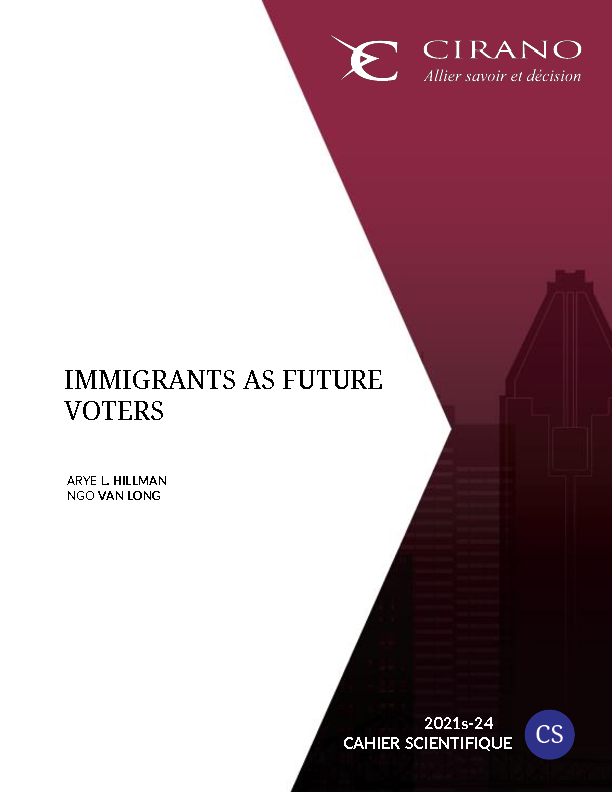Immigrants as future voters
Immigration policies in western democracies have often been contrary to the policies predicted by the mainstream theory of international economics. In particular, political parties that, according to economic theory, should adopt policies beneficial for lower-income voter-constituencies, have not protected workers from labor-market competition or from a fiscal burden of financing welfare-dependent immigrants. We explain the contradiction by accounting for immigrants as future voters. We identify a political principal-agent problem based on ego-rents from political office. Our theory predicts voter defection from worker-supported political-establishment parties to new-entrant anti-immigration political candidates and parties. We give a hearing to alternative interpretations of the evidence.




